#I have not known peace since I watched the Russian five documentary over a year ago
Explore tagged Tumblr posts
Text
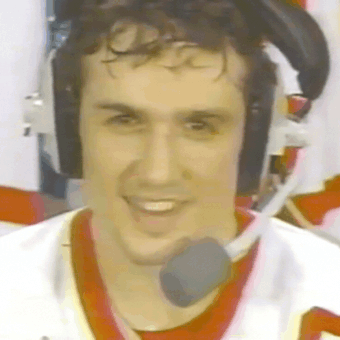

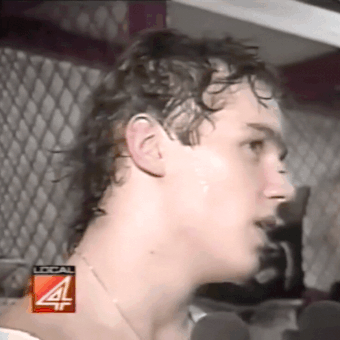
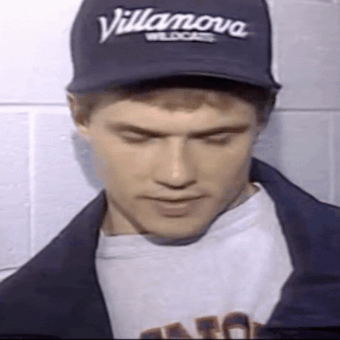
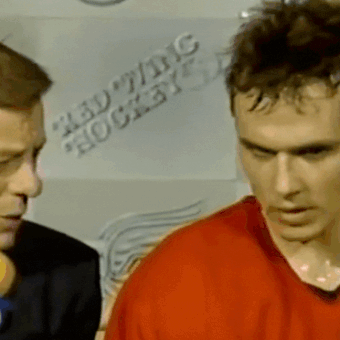

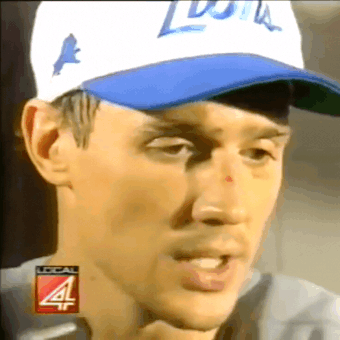

90's Steve Yzerman interviews really just hit different
Bonus:

#steve yzerman#thank you channel 4 and pass sports you were doing the lords work#anyway i continue to be down bad for vintage Stevie#those cheekbones! that jawline! that mouth! the chain! and the cunty jacket over-the-shoulder stance!#I have not known peace since I watched the Russian five documentary over a year ago#hockey#detroit red wings
206 notes
·
View notes
Text
Two Assassinations in Five Years
An assassination is definitely a large contribution when talking about the events that curse a family, but two assassinations over the course of five years is definitely bad luck.
Both President John F. Kennedy and his brother, Bobby, were assassinated. I find this extremely interesting (and a little ironic), and wanted to see if there were any parallels between the assassinations. In order to do this, I watched two documentaries.

(Photo Source)
The first documentary that I watched, "The JFK Files: The Murder of a President", was created by The Fifth Estate, a news source that is part of the Canadian Broadcasting Corporation.
I found this documentary extremely interesting because out of all the conspiracy theories of who really shot JFK, the documentary focused on the FBI and CIA as the president’s assassins.
The thing that I found most interesting was how much trouble these government agencies went through to make Lee Harvey Oswald look like the assassin, when really the evidence would have proved that if it wasn’t tampered with.
Let me give some background information: Lee Harvey Oswald was a Communist sympathizer supposedly responsible for shooting President Kennedy from the window of the Texas School Book Depository. The building he shot from was along the route that JFK's motorcade was following when he got assassinated. What was believed to have happened was that Oswald shot the president from the sixth floor of the building that was about 300 yards away from the moving car that JFK was sitting in. That is what the government tried to tell everybody what happened, when really they were just trying to hide their involvement.
Since 1959, both government agencies have been investigating Lee Harvey Oswald and his Russian wife, Maria. Why? Because Oswald tried to get out of America and get citizenship into Russia, at a time when the Cold War was at an all time high and Communism caused the Red Scare in America. When he was denied Russian citizenship, he handed out pro-Communist propaganda in the streets of Dallas, Texas. Up until the assassination in 1963, The FBI and CIA were constantly checking up on Oswald. So, how did he get past their supervision the weekend that JFK was going to be visiting Dallas? Well, if the government was going to use LHO as a cover up for the president's assassination, then this was all part of the plan.
The major evidence that was explained to support the argument that the government used Lee Harvey Oswald as a cover-up was in the autopsy report and government documents surrounding the assassination.
First, the autopsy report. When President Kennedy was pronounced dead, the doctors that tried to save his life were to give a brief report about the state of his body. They said that his head had very little damage and most of the damage was in his back, neck, and chest- where the bullets had entered and traveled. His body was wrapped in a white sheet and placed in a bronze casket that would be flown to Bethesda Naval Hospital for an official autopsy and then Washington, D.C. for the funeral and burial. When the body arrived for the autopsy, the doctors were shocked to see that Kennedy’s brain was missing and his head was in terrible condition. He also arrived in a body bag and metal box. The doctors believed that on the plane ride from Dallas to D.C., the government officials on the plane tampered with the body either to make it more evident that Oswald’s shots really destroyed the president’s head or to make Kennedy’s head in such a bad state that no investigating could take place.
Second, the government reports. In April 2018, President Trump had the government release more documents surrounding the investigation of JFK’s assassination. One report from the FBI director, J. Edgar Hoover, specifically states, “…so we can convince the public that Oswald is the real assassin.” Think about it, why would the American people need convincing if Oswald really did assassinate the president, and why is it any concern of the FBI director?
After seeing this evidence, it really made me think. If the government was in fact responsible for JFK’s assassination, then what other national tragedies are they responsible for and are covering up. I mean, if they could get away with covering up the assassination of the leader of America, what else can they get away with? One of the individuals that was interviewed several times during the documentary, Bob McKowen, was talking about how there are still millions of documents that have not been released and how he doesn’t understand why after all this time the government is keeping these documents secret and are not releasing the truth about what happened. All of the men that were served in the government during Kennedy’s presidency are dead, so even if they were found guilty, nothing could be done.
It seems like this is a lot of obvious evidence to pin the government as the group responsible for the assassination of John F. Kennedy… almost evidence that is too obvious. I looked into as many sources as I could to see how credible this documentary really was. I found it helpful that they included actual photocopies of the government documents, as well as video clips and pictures from November 22, 1963. The people were interviewed during most of the documentary both seemed credible and to have real knowledge about the assassination. Bob McKowen is an investigative journalist and has spent decades researching the assassination, and even made a documentary on the 20th anniversary of the assassination that was watched by millions. Jefferson Morley was another man interviewed and he is a veteran journalist for the Washington Post and has written several books on the government’s involvement with Kennedy’s assassination.
Just five years later, John’s brother had a fate similar to his own, he was shot dead in the early hours of June 5, 1968. For this event, I watched the Netflix Original Series, “Bobby Kennedy for President” episode 3, “You Only Get One Time Around”.

(Photo Source)
The episode starts with a bunch of different news reports from 1968 announcing all the violence that was going on in the United States at the time. Two main events for violence were the Vietnam War protests and issues surrounding race (not to mention the assassination of Martin Luther King Jr. as well). The world is portrayed as absolute chaos, and then there is Bobby Kennedy, making speeches and visiting people all across the United States, trying to promote peace. The people that are interviewed in this particular documentary are those who worked with him on his campaign or met him when he gave one of his many speeches promoting peace. Each person that was interviewed viewed Bobby as a hero for the future of the United States at that time.
1968 was a big year because that November there was going to be a presidential election. The election became an even bigger deal when the current president, Lyndon Johnson announced he was not going to seek re-election for another term in office. That freed up the spot for a Democratic nominee, and after a lot of coaxing, RFK decided to run for president in March 1968. Little did he know that three months later he would be assassinated and never make it to the election of 1968.
It was the night of June 4, 1968, and Robert Kennedy just won the primaries in California, a big and very important state needed to officially become the Democratic presidential nominee. He announced his triumph at the Ambassador Hotel, where a rally had been held to watch the results of the primary. The results were announced shortly after midnight, and at this point it was the early hours of June 5. He got off the podium and was escorted into the kitchen of the hotel, when a gunman came out from the surrounding crowd and shot him in the head. The assassin was taken down immediately, and unlike with his older brother, RFK’s assassin was known. The man responsible for killing Robert Kennedy was 24-year old Sirhan Sirhan. Bobby died about an hour and a half after being shot.
I did not know as much about the assassination of RFK as I knew about the assassination of JFK, but there was one thought that struck me right as I began watching the documentary: It’s sad that RFK, a man who fought so much for the end to violence was taken down and killed by violence. The same goes for Martin Luther King Jr. The same goes for John F. Kennedy. All of these men were loved by so many, it seems unfair that their lives were ended in one of the most violent ways, and were killed out of hatred.
Seriously, think about it. So many people loved President John F. Kennedy. A lot of people liked him because of how he ruled the country, but a lot of people also were attracted to his youthfulness, charisma, and the fact that he was a family man. A lot of people loved Martin Luther King, a majority being those of the African American nationality. Those who were not African American and still loved King were those who were also for civil rights. Many people loved Bobby Kennedy for his dedication to peace and his idea to reunite all the races of the United States, even before he started running for president. All of these men were loved, yet they died out of hate.
Going back to the main idea of my blog and trying to make a connection between the events of the Kennedy Curse and if fame and fortune caused these tragedies, in this case I would say yes. In both the assassination assassinations, if JFK and RFK were not famous, I think they would have lived full lives. I believe this because they would not have been seen on a global scale and their every move wouldn’t be publicized. Their political views would not have such an effect on America, and they would not be shot because of them. None of this would have happened if the Kennedys did not have such status and power as they did in the 20th century.
0 notes
Text
13 Anthony Bourdain Quotes And What They Mean to Me as a Travel Addict
Anthony Bourdain was one of those unique people that found a way to inspire people from all walks of life. Whether you were a foodie, a filmmaker, a photographer, a writer, a speaker, a traveler or just an armchair viewer. For some reason, we all saw something of ourselves in Anthony, and we couldn’t get enough of living vicariously through his adventures as he ate his way around the world.
For me, my love for the bad boy chef started during the first season of his show ‘No Reservations.’ The fresh faced adventurer launched the Travel Channel series in 2005, and through the next 7 years and 142 episodes, Bourdain took us everywhere from Iceland to Namibia to Beirut, the last of which saw him and his crew become trapped during the Israel-Lebanon War in 2006.
Through it all, we watched intently as Bourdain ate everything that was handed to him while having casual conversations with locals that kept viewer’s ears perked. As much as I loved the visual aspects of everything Bourdain did, his words and the smooth way he voiced over the episodes was what excited me most. In my opinion, his no-holds barred words of wisdom were Bourdain’s greatest talent. He wasn’t afraid to voice his curse-laden opinion, and even when they were at their most biting, they just MADE SENSE.
Anthony Bourdain has left behind an entire book worth of quotes to live by, but here are 13 of my favorite that I will carry with me for the rest of my life, in every corner of the globe.
“If you’re twenty-two, physically fit, hungry to learn and be better, I urge you to travel – as far and as widely as possible. Sleep on floors if you have to. Find out how other people live and eat and cook. Learn from them – wherever you go.”
This is such a great quote, for so many reasons. Having been to almost 40 countries, I feel like I am a seasoned traveler, but, I didn’t get my first passport and international plane ticket until five years after the age he references. Looking back, I had wish I found my love of travel at an earlier age, but I interrupt this quote as Bourdain looking back in a “I wish” way just like I do.
This quote is from his book ‘Kitchen Confidential: Adventures in the Culinary Underbelly,’ published in 2000. This is the book that put Bourdain on the map. It quickly became a New York Times bestseller and led to the first of his three television shows, ‘A Cook’s Tour’, which debuted in 2002 when the jack of all trades was 46 years old. Think about that. For the first 44 years of his life, the man we all feel we knew so well was known by almost none of us. While Bourdain then became known for his extensive travel documentary TV shows, maybe the quote was a self-reflection…’If I could talk to my 22 year old self.’
And lastly, even though food was his passion and what he was most known for, it’s telling that he mentions ‘Find out how people live’ before he mentions food. Food will come and go, but people and cultures will always be there, and at his core, that’s what Bourdain was passionate about. The people.
“Travel changes you. As you move through this life and this world you change things slightly, you leave marks behind, however small. And in return, life—and travel—leaves marks on you. Most of the time, those marks – on your body or on your heart – are beautiful. Often, though, they hurt.”
This. My first trip out of the country was to Costa Rica back in 2007. I went to the cloud forest, the volcano, the beaches. It was amazing. But, I was a tourist, doing tourist things. It wasn’t until a trip to work with a non-profit organization in Peru changed the way I view the world and how I choose to travel. I know that my work in local communities has left marks, even small. But, most important, those experiences left huge marks on me and changed the person that I was into the person that I am now.
“The journey is part of the experience – an expression of the seriousness of one’s intent. One doesn’t take the A train to Mecca.”
Bourdain is so right with this one. Most of the time, we always focus on the destination, not giving proper attention to the journey that gets us there. In my experiences, the journey, and the people that I met and the experiences I had on the journey, are often more rewarding then the destination itself. In our ever growing ambition to always be looking forward, don’t forget what’s right there at your side.
“I wanted adventures. I wanted to go up the Nung river to the heart of darkness in Cambodia. I wanted to ride out into a desert on camelback, sand and dunes in every direction, eat whole roasted lamb with my fingers. I wanted to kick snow off my boots in a Mafia nightclub in Russia. I wanted to play with automatic weapons in Phnom Penh, recapture the past in a small oyster village in France, step into a seedy neon-lit pulqueria in rural Mexico. I wanted to run roadblocks in the middle of the night, blowing past angry militia with a handful of hurled Marlboro packs, experience fear, excitement, wonder. I wanted kicks – the kind of melodramatic thrills and chills I’d yearned for since childhood, the kind of adventure I’d found as a little boy in the pages of my Tintin comic books. I wanted to see the world – and I wanted the world to be just like the movies”
Chills. This is pure Bourdain. Not everyone has the craving for chaos like he did, but this is an important quote to think about, even if you aren’t as adventurous or fearless as Anthony Bourdain. The lesson learned from this is that there is a certain romance to be found by putting yourself out of your comfort zone. Slowly at first, but as you get more comfortable NOT being comfortable, the rewards of the hair-raising experiences will be in your soul for life. Do you want to sit around the fireplace telling your grandchildren about the time you took a photo with Micky Mouse at Disneyland Paris, or do you want to scream with glee as you tell them about the time you tried to go vodka shot for vodka shot with Vlad the Russian Mafia boss?
“I’m a big believer in winging it. I’m a big believer that you’re never going to find perfect city travel experience or the perfect meal without a constant willingness to experience a bad one. Letting the happy accident happen is what a lot of vacation itineraries miss, I think, and I’m always trying to push people to allow those things to happen rather than stick to some rigid itinerary.”
“I learned a long time ago that trying to micromanage the perfect vacation is always a disaster. That leads to terrible times.”
This is actually two quotes, but they are one in the same. For me, travel isn’t about the swanky room at the Four Seasons. I would rather get off a plane and find my way to a cheap guest house in Amman, Jordan where the 24-hour front desk man is watching old videos of Hulk Hogan in cage matches. I was the only person staying in this house, and I understood why. Bed bugs, a death trap elevator, and creepy footsteps outside of my door at 3am made for quite the story to tell, all these years later. But the real reward? That front desk man told me every food cart I couldn’t miss and every back alley Shisha bar that would welcome me with open arms. I went to every place he told me. I was the only foreigner in each place, and I traded stories, laughs, good food and great smoke with the people I met. Those are the moments I would have missed if I didn’t put myself in a position to find the happy accidents. If I had a rigid itinerary. Tony is right. For me, that sounds like a disaster.
“It’s an irritating reality that many places and events defy description. Angkor Wat and Machu Picchu, for instance, seem to demand silence, like a love affair you can never talk about. For a while after, you fumble for words, trying vainly to assemble a private narrative, an explanation, a comfortable way to frame where you’ve been and whats happened. In the end, you’re just happy you were there- with your eyes open- and lived to see it.”
Having been to both of those places Bourdain references, I can wholeheartedly understand this quote. While both are filled with tourists, somehow, you find your own zen and you feel completely at peace, and a silence envelopes your mind. You imagine the centuries worth of history that have lived in the walls. You think about the spiritual and religious meaning that they had for millions of people before us. Even in smaller, lesser known places, sometimes experiences just defy description and you can’t really express the feelings that washed over you.
In this day in age where many travel moments are simply experienced for an Instagram photo, it’s important to keep this quote in the back of your mind. Often, I am so consumed with getting the perfect photographs, I sometimes forget to have my eyes open, being happy that I was there and had lived to see it. But when I do put my camera down and live the experience, those memories are as sharp as any photograph I have ever taken.
“It seems that the more places I see and experience, the bigger I realize the world to be. The more I become aware of, the more I realize how relatively little I know of it, how many places I have still to go, how much more there is to learn. Maybe that’s enlightenment enough – to know that there is no final resting place of the mind, no moment of smug clarity. Perhaps wisdom, at least for me, means realizing how small I am, and unwise, and how far I have yet to go.”
Unfortunately, this one cuts like a knife knowing that Bourdain still had so much life in him, and in his words, ‘how far he has yet to go.’
The world is never-ending. There is always a story out there to tell. Always a new culture to explore. Always a new cuisine to try. And always, always something to learn. Travel isn’t a skill you can master. It’s simply a never-ending learning experience. And that, as Bourdain says, we are ultimately always going to be small and unwise in the grande scheme of the world. And that’s the beauty of it. You can’t learn anything by knowing everything.
“When dealing with complex transportation issues, the best thing to do is pull up with a cold beer and let somebody else figure it out.”
Thank you Anthony, thank you. Just a perfect quote to realize that, not everything is easy or under control while traveling. And often times there is nothing you can do about it. And that’s ok. It’s just an excuse to enjoy the moment and be thankful you aren’t sitting behind your computer desk running TPS reports. Just have a beer and make out with someone at a fuel station.
“I think food, culture, people and landscape are all absolutely inseparable.”
This is the reason why you can never see enough of the world. Each continent, each country, each neighborhood, is unique. That uniqueness comes from a multitude of factors, as Bourdain describes. But each inseparable quality comes together in a melting pot to make that location undeniably unique and interesting. When we try to change any of those, or don’t appreciate just one of those, the aspects that make a place an experience unique dwindles.
“Without experimentation, a willingness to ask questions and try new things, we shall surely become static, repetitive, and moribund.”
I have visited countless countries over and over again, seemingly on the almost same itinerary each passing year as I lead workshops for The Giving Lens. While the experiences are always amazing, I always ask myself ‘what can I do to try something new? To learn something new?’ Usually, those answers aren’t evident until they are right in front of my eyes. But without being willing to experiment, talk to every single person I can, and to try new things, even amazing places would start to make me static.
“Travel isn’t always pretty. It isn’t always comfortable. Sometimes it hurts, it even breaks your heart. But that’s okay. The journey changes you; it should change you. It leaves marks on your memory, on your consciousness, on your heart, and on your body. You take something with you. Hopefully, you leave something good behind.”
Very similar to the first quote in this article. Not all of the marks left on me have been positive. I have shed tears hearing the hard stories of children all over the world, been haunted by the images of children eating out of the discarded trash. I have found love and lost love. But through it all, every experience helped me understand the world and the beauty that this life is.
“If I’m an advocate for anything, it’s to move. As far as you can, as much as you can. Across the ocean, or simply across the river. The extent to which you can walk in someone else’s shoes or at least eat their food, it’s a plus for everybody.
Open your mind, get up off the couch, move.”
Not everyone has the luxury of being able to travel across the ocean. But, almost everyone does have the luxury of being able to travel across the river that sits outside of their own backyard. To me, this quote just says ‘get up, get out, and learn from as many people as possible, even if they are in your own backyard.’
Some of the most interesting people I have met and some of the most incredible experiences I have had were right in my own back yard, and I found them when I wasn’t necessarily looking. But I found them because I moved. Because I got off my couch and didn’t let anything stop me from just moving.
“Do we really want to travel in hermetically sealed popemobiles through the rural provinces of France, Mexico and the Far East, eating only in Hard Rock Cafes and McDonald’s? Or do we want to eat without fear, tearing into the local stew, the humble taqueria’s mystery meat, the sincerely offered gift of a lightly grilled fish head? I know what I want. I want it all. I want to try everything once.”
So true. I have had a lot of weird food on my travels, some amazing, some horrible. But how can I fully embrace the local culture with a Big Mac? The Big Mac wasn’t being eaten by the Cambodians decades ago. Snake on a stick was. So, as hard as it is to take that first bite sometimes, I just think about Bourdain saying ‘I want to try everything once.’
Anthony Bourdain was truly one of a kind. It is said that he was really quite intraverted, although you would never know it from his on screen persona. If he was, he put his desire to see the world and connect with people above his fear of social settings. And in doing so, he taught us about life, love, food, travel. But most importantly, he taught us that the world is so big, yet so small at the same time. Everyone has a story to tell. He showed us that no matter where we live, we are all one in the same and there is beauty and romance in getting to know everyone’s story. Especially if it is sitting around a giant table filled with food and wine and surrounded by friends, both old and new.
Rest Easy to the traveler who, despite all the miles, never tired of the experiences.
The post 13 Anthony Bourdain Quotes And What They Mean to Me as a Travel Addict appeared first on Resource.
0 notes